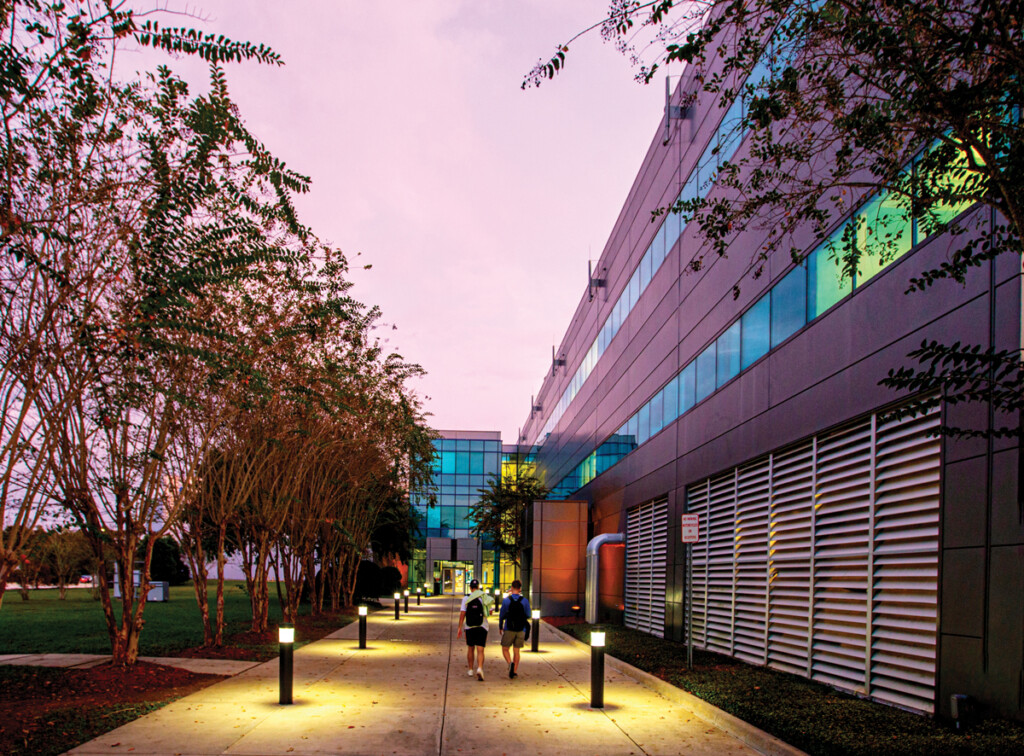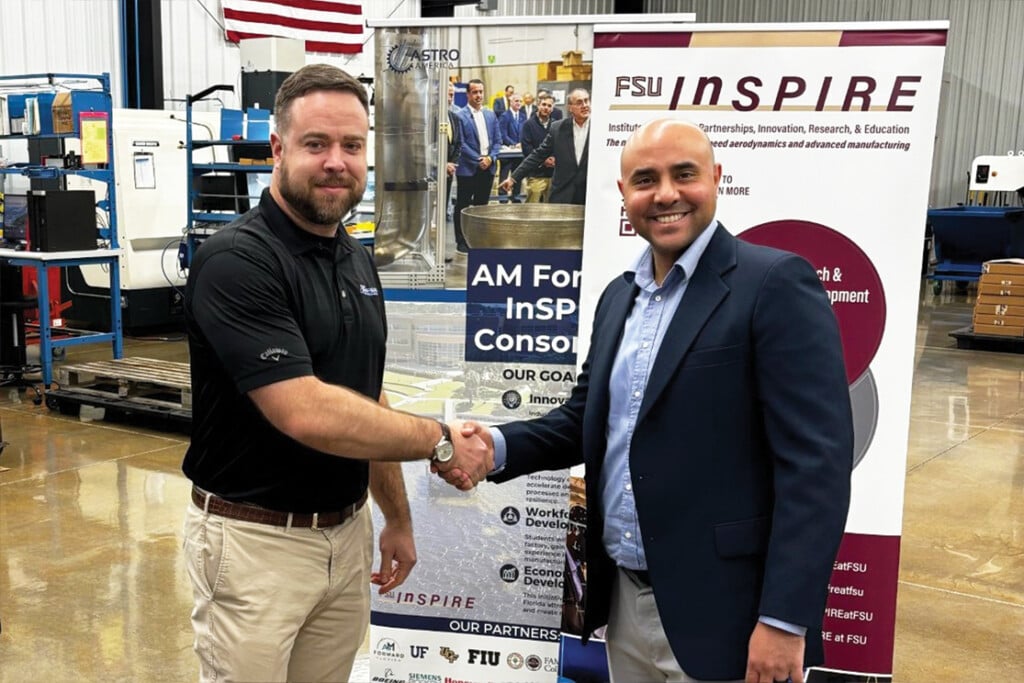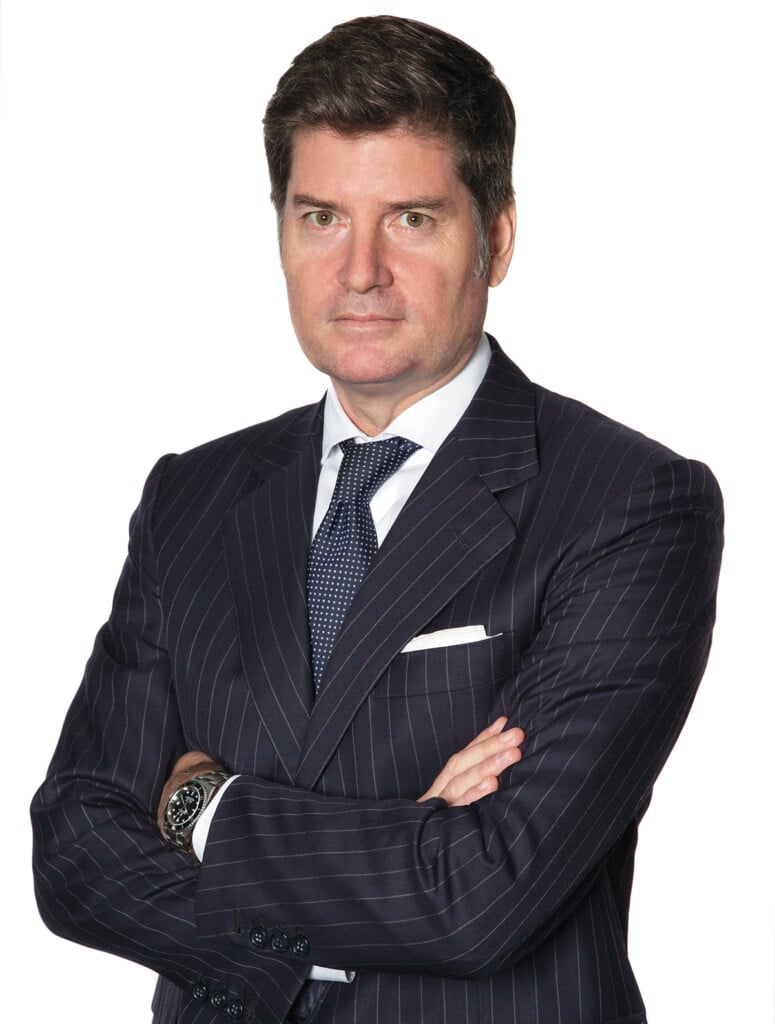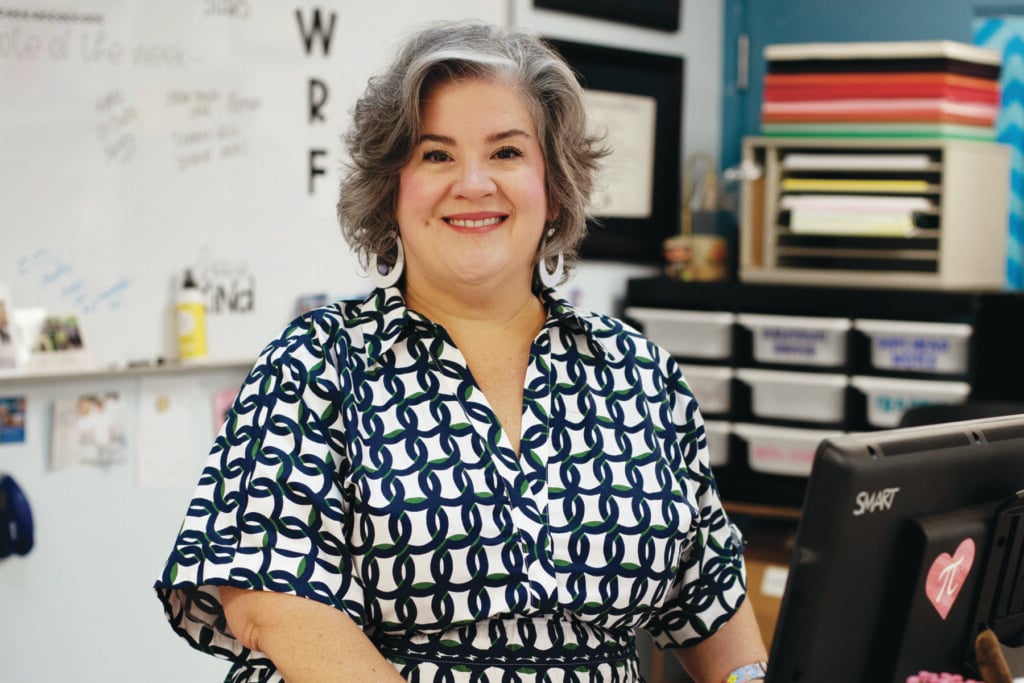Engineering Tomorrow
Innovating for the entrepreneurial mindset

The FAMU/FSU College of Engineering (COE) is the only shared college of engineering in the United States. Joining the colleges was a state mandate, passed by the Florida Legislature in 1982, combining the historically black university with the Research-1 institution.
Once students finish the prerequisites at their home institutions, they take their core engineering courses together at the COE, earning the same degrees.
“With 3,000 students and a faculty of about 144, we’re a small college,” said Tisha Keller, the COE’s assistant dean for marketing, media, and communications. “But we have this huge research ecosystem that is unparalleled, especially in the areas of magnets, cryogenics, and superconductivity. Basically, our college has resources that you wouldn’t expect us to have.”
Students are granted access to perform research at the National High Magnetic Field Laboratory, the Center for Advanced Power Systems, the High-Performance Materials Institute, and Resilient Infrastructure and Disaster Response Center, several of which are renowned in their fields and within walking distance of one another.
“I don’t think people in Tallahassee appreciate what they have here,” Keller said. “I don’t think they know that the world’s smallest, strongest magnet was developed at Innovation Park.”
In addition to the broad categories of degrees generally available at other institutions, several specialized majors are available to FAMU/FSU students, including mechanical engineering, chemical engineering, and biomedical engineering with cross training available. For example, students studying mechanical engineering have the opportunity to learn about topics in aeronautics and magnetic/materials sciences.
“There’s so much high tech, really specialized research done in these broad areas that isn’t done elsewhere,” Keller said. “Like with magnets and resilience; just crazy stuff that daily impacts our lives but that most people don’t associate with engineering.”
A focal point of the program is getting students into the lab early to ignite their passions for engineering through the application of learning theories. Additionally, students can work with luminaries in their field and instructors at the pinnacle of academic engineering.
“They figure out that engineering’s more than they thought it was and that maybe there’s no limit to how they can affect the world with their major,” Keller said.
A goal of the school is to promote a culture of innovation and entrepreneurship for young inventors. In partnership with the Jim Moran College of Entrepreneurship, the COE offers an entrepreneur in residence program with aims to collaborate with students to commercialize their inventions. Competitions with cash prizes allow students the opportunity to pitch innovations and new technologies while also patenting and protecting their ideas.
“Students have invented things like seatbelt restraints,” Keller said, “alarms so parents don’t leave their kids in hot cars, and human trafficking devices for restrooms so females can alert authorities they need help. Students have also invented new ways to deliver diabetes medicine and other things. Some have started companies.”
The COE, she noted, annually generates two-thirds of FSU’s patents and 100 percent of FAMU’s, along with having faculty who have founded companies and others responsible for groundbreaking research and discoveries.
“There’s a lot going on,” Keller said. “We work with the Navy on electric ships and aircrafts, which is next-generation stuff. We just got $10 million through FAMU from the National Science Foundation to look at quantum engineering. It’s absolutely incredible stuff that they’re doing right here and now at this college.”
Quantum algorithms first emerged in 1984 when Charles Bennett and Gilles Brassard applied quantum theory to the field of cryptography, demonstrating superiority in security protocols. Since then, there has been an explosion in the synergy of computing and quantum theory. Modern technology is furthering this trend, creating new opportunities for quantum engineering, which FAMU/FSU COE is embracing.
Keller quoted Dean Suvranu De who said, “In the past, engineers went to school to learn how to make steam and car engines. The next generation will be learning how to do quantum computing.”


